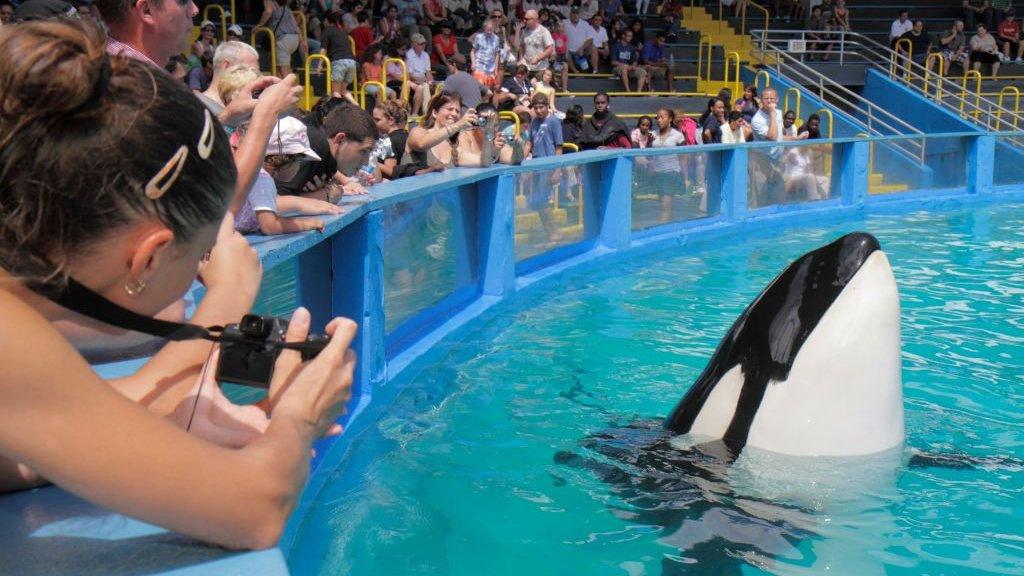Killer whale boat attack videos might not be what they seem
- Published
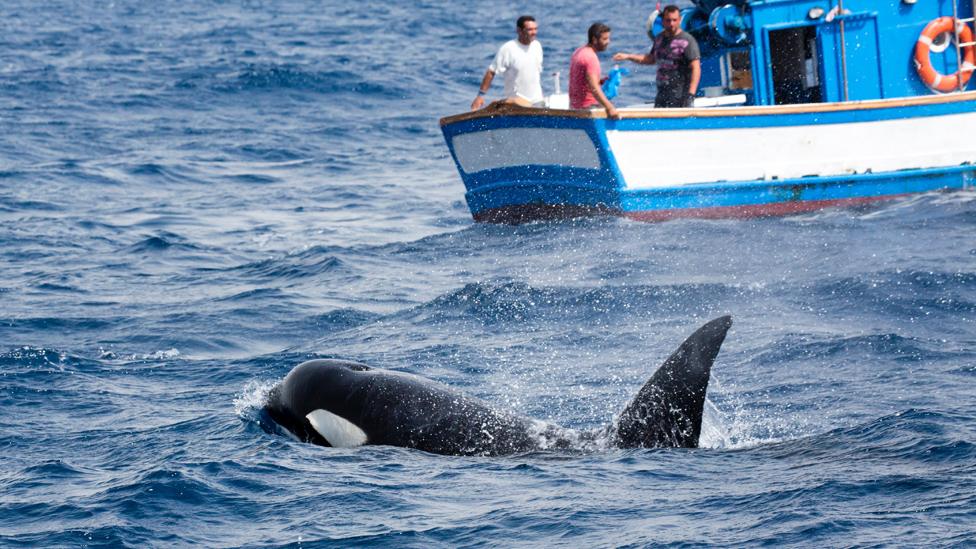
Killer whales are a common sight for fishermen where the Atlantic Ocean meets the Mediterranean Sea - and both usually keep their distance
TikTok can't seem to get enough of "orca attacks".
A large fin moves towards a vessel, followed by a huge splash. Next thing you know, a killer whale leaps out of the water and hits the boat.
Sounds like the stuff of nightmares, but it's been a reality for sailors along the Iberian coast of Spain and Portugal.
GT Orca Atlántica (GTOA), which monitors killer whales in the area, recorded 207 interactions in 2022.
Social media's been flooded with videos of these encounters, apparently showing the creatures chasing boats.
There's even been a number of reports over the last three years of the mammals hitting and sinking vessels.
And it seems to be spreading - an orca reportedly rammed a boat, external in the North Sea this week.
There are multiple theories about why they're doing it.
'It's fun for them'
One of the main ones on social media is that the orcas are seeking revenge for White Gladis - a killer whale hit by a boat.
That caught on when Alfredo López Fernandez, from GTOA, was quoted as saying a "traumatised orca" had launched the attacks.
But, according to animal behaviour experts, it might not be quite how it looks.
"The idea of revenge is a great story, but there's no evidence for it," says neuroscientist Lori Marino, president of the Whale Sanctuary Project.
"There's never been a case of an orca harming a human being in the wild.
"If they really wanted to do damage and harm the people on the boat they could easily do that."
Instead, Lori tells BBC Newsbeat, it's more likely the apparent attacks "started out as play behaviour", and it's a case of copycat killer whales rather than aggression.
"We're talking about very intelligent beings, and we know that they are social learners," she says.
"It gets passed down... it may be something that's fun for them, and they're gonna keep doing it."
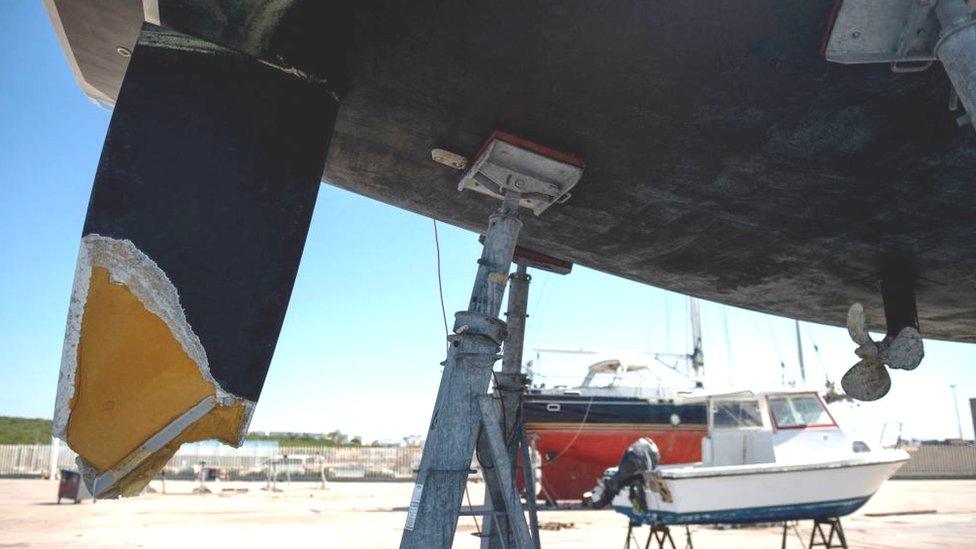
Ships hit by orcas in the Strait of Gibraltar have come off worse than the whales
It's a view shared by Dr Deborah Giles, the science and research director for the non-profit Wild Orca, in Washington State, USA.
She also believes the whales are having fun and "engaging with things in their environment".
"I really feel that it is something about the underside of the sailboat, the keel, or the long portion of the boat that sticks far down into the water," she says.
"There's something about that part of the boat that seems to be attractive to the animals."
Dr Giles is keeping an open mind and won't rule out other possibilities.
But it's precisely because whales are so intelligent that she thinks the attack theory is unlikely.
After all, she points out, if orcas really wanted to take revenge against humans for ill-treatment, why wait until now?
"Whales in this part of the world were heavily targeted in the late 60s, through the mid 70s, for the marine parks," she says.
"They've witnessed members of their families being taken out of the water and put on a truck never to return.
"If any group of killer whales had a reason to retaliate or seek revenge on humans, that would be this population.
"But we've never seen that."


Follow Newsbeat on Twitter, external and YouTube, external.
Listen to Newsbeat live at 12:45 and 17:45 weekdays - or listen back here.
Related topics
- Published9 February 2023
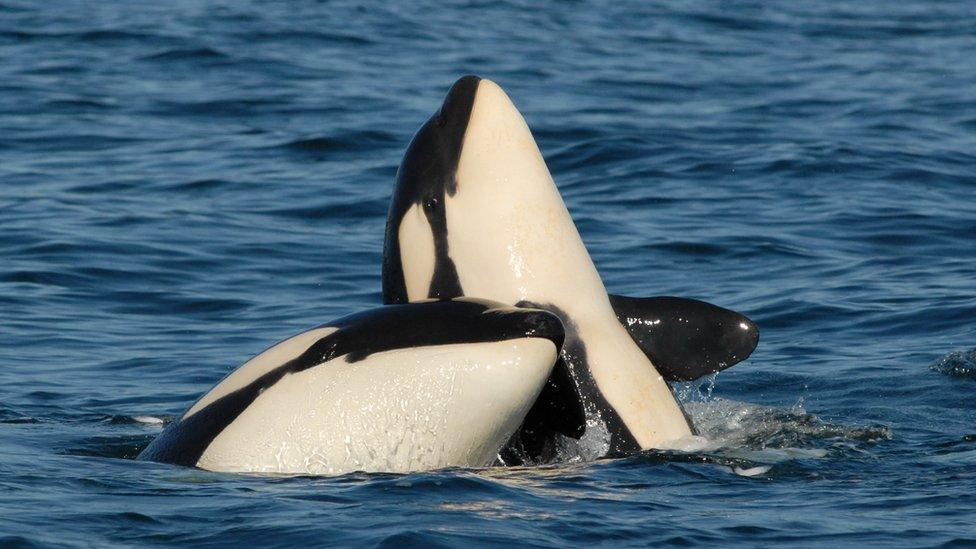
- Published26 September 2020
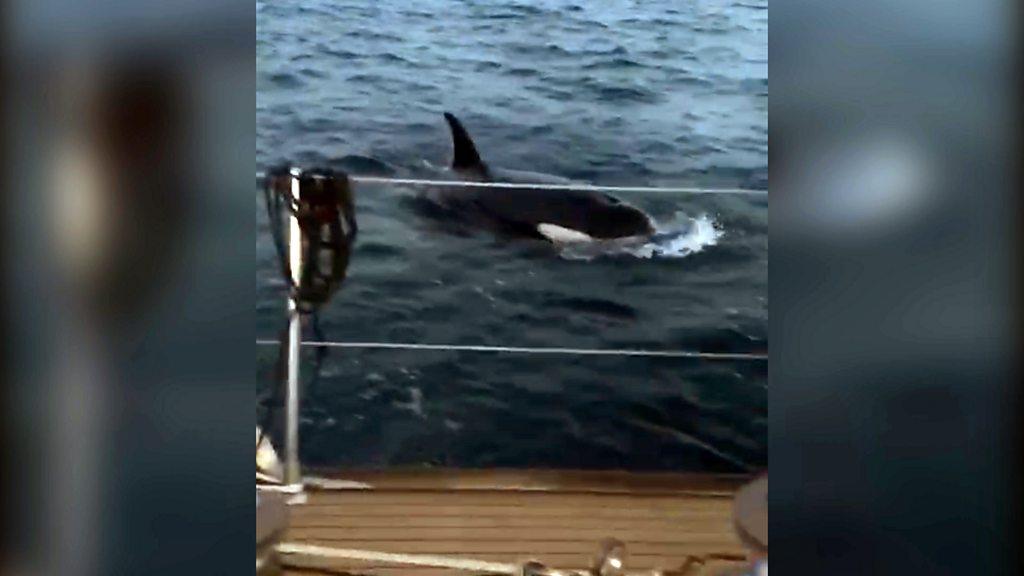
- Published31 March 2023
